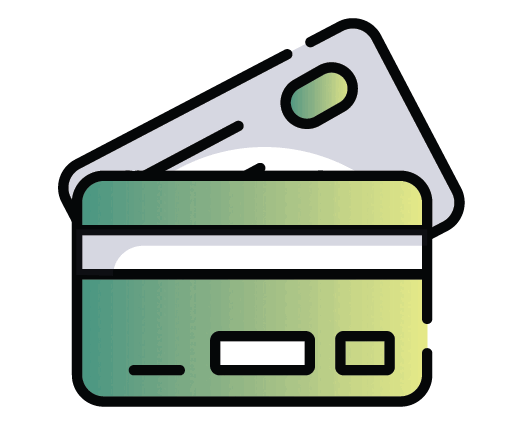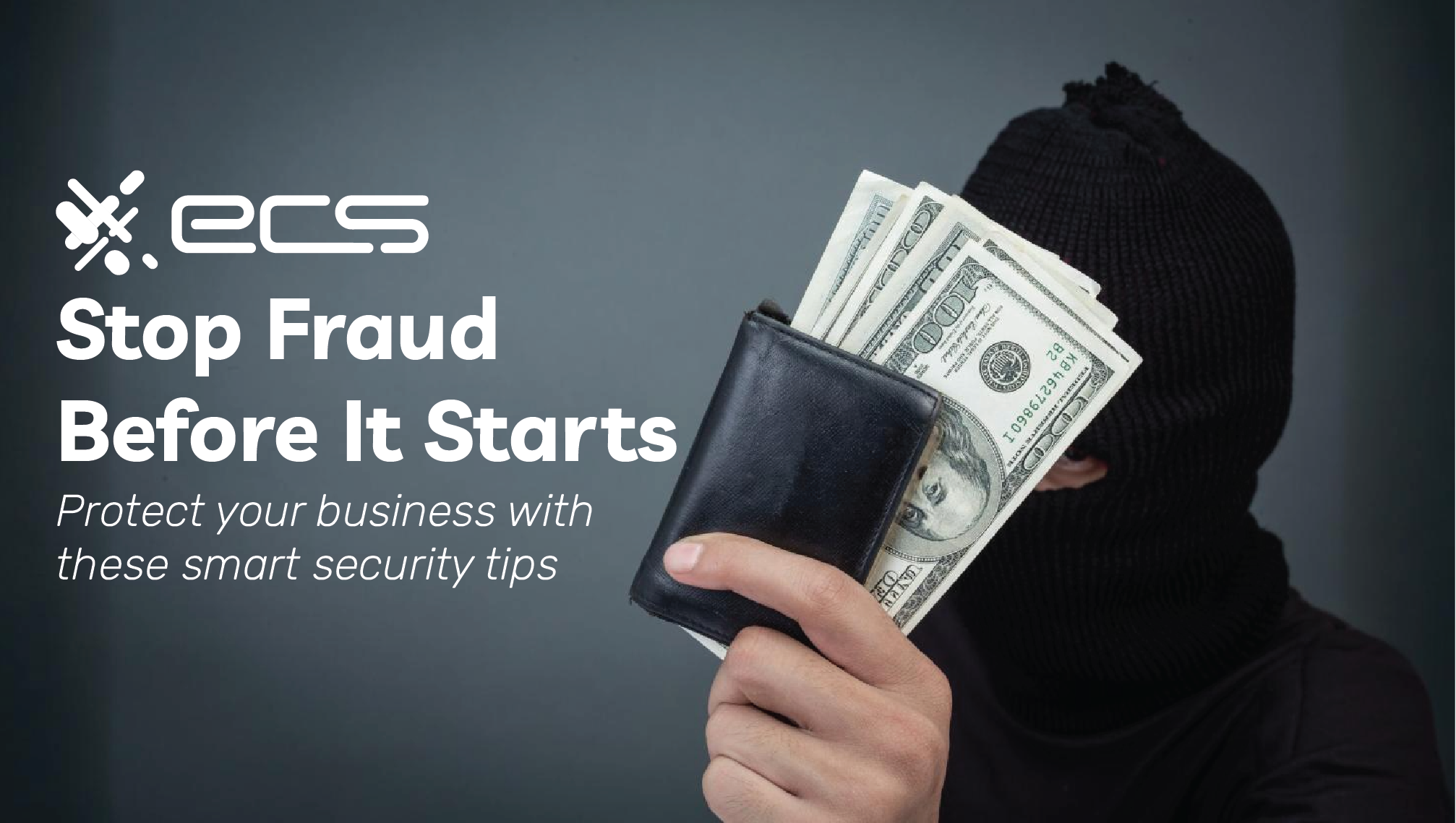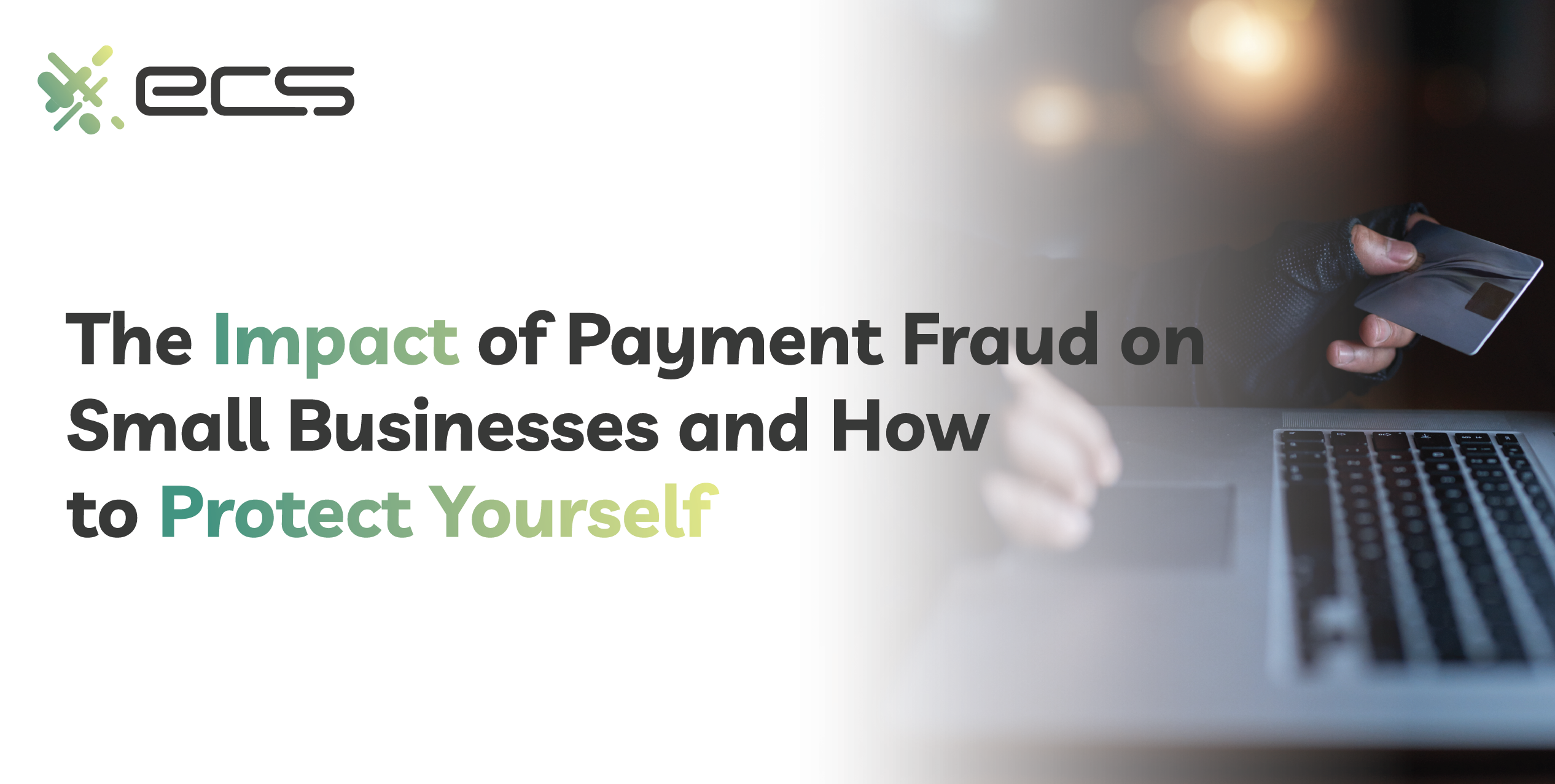With the increase in weaponized technology, small businesses are increasingly vulnerable to payment fraud in today’s digital world. As e-commerce and online transactions continue to rise, so do the opportunities for fraudsters to exploit weaknesses in payment systems. For small businesses, the impact of payment fraud can be devastating—both financially and in terms of reputation. Fortunately, there are best practices your business can implement to protect itself from falling victim to fraud.
This article will explore the impact of payment fraud on small businesses and provide actionable strategies to safeguard your business, from implementing secure payment systems to using fraud detection tools. Additionally, we’ll highlight why ECS Payments is one of the best solutions to help you protect your business from fraud and ensure secure payments.
What is Payment Fraud?
Payment fraud is when a malicious person, otherwise called a “fraudster,” initiates an unauthorized transaction using stolen payment information, such as credit or debit card details or bank account numbers. It can occur in many forms, including:

Credit card fraud: when someone uses stolen card information to make an unauthorized purchase.

Chargeback fraud: when an actual customer disputes a legitimate transaction, forcing the business to refund the amount even though the purchase was made.

Account takeover: When a fraudster gains access to a customer’s account, often through phishing or weak passwords, and makes unauthorized transactions.

Identity theft: When fraudsters steal personal information to open accounts or initiate transactions in a victim’s name.
Payment fraud can be particularly dangerous for small businesses because they may lack the resources to recover from substantial financial losses or address the reputational damage that can follow an incident of fraud. A recent survey revealed that more than one-third of small businesses consider credit card fraud a significant concern.
The Impact of Payment Fraud on Small Businesses
Payment fraud can have severe consequences, not just for customers but for small businesses that handle these transactions. It is important for these business owners to be aware of their risks and how to minimize them.
1. Financial Losses
One of the more obvious concerns of payment fraud is the direct financial loss. Fraud can cause an estimated 5% loss of annual revenue for small businesses. Fraudsters can steal money through stolen credit card information, account takeovers, or fake chargebacks. Not only that, but cardholders can issue chargebacks on transactions that were not legitimate. Paying chargeback fees and refunding customers for wrongful transactions eats away at businesses’ financial stability. With limited cash flow, a single fraudulent transaction can result in a significant revenue loss for small businesses.
2. Damage to Reputation
Fraudulent activity can severely damage a small business’s reputation. Notably, 67% of small business owners lack confidence in their ability to recover from a cyber-attack or large fraud incident, underscoring the potential long-term reputational damage.
Customers can, understandably, lose trust in your business if they feel their payment information is not secure. Negative reviews or word-of-mouth can spread quickly, especially on social media, resulting in lost sales and long-term damage to your reputation.
Once customers lose confidence in your payment system’s security, it can be difficult to rebuild that trust, and they may seek out competitors who offer more secure transaction methods.
3. Operational Disruption
Fraud can lead to disruptions in operations, especially if the business has to deal with multiple fraudulent chargebacks, security investigations, or customer complaints. In 2023, consumers reported losing over $10 billion combined to fraud, which was a 14% increase from the previous year. This could be a growing trend that could impact business operations.
Dealing with the effects of fraud can require additional staff and external expertise, diverting attention and resources from running the business. This diversion can delay orders, reduce staff availability, or minimize other essential functions, resulting in increased operational costs and strains the business.
4. Legal Consequences
Businesses must adhere to various data protection regulations, such as the GDPR in Europe, CCPA in California, or PCI DSS regulations. Failure to comply and inadequately secure customer data, can result in legal consequences and heafty financial penalties. It could even result in the loss of a merchant account and being blacklisted from payment processing in the future.
5. Loss of Customer Trust
When fraud happens, customers feel their personal and financial data is unsafe with your business. A study found that 75% of fraud experienced by digital businesses was first-party fraud, which significantly erodes customer trust.
Customers expect businesses to have secure payment processes when handling their sensitive information. Breaches lead to a loss of trust. When a customer loses trust in your business, it’s easy to abandon your brand for more secure alternatives.You can say bye bye to any customer loyalty.

How to Protect Your Business from Payment Fraud
While payment fraud poses significant risks, there are many ways you can protect your small business and minimize the chances of fraud affecting your operations. Here are key steps you can take to secure your business’s payment processes:
1. Use Secure Payment Gateways
The first thing you should do to prevent payment fraud is to ensure you are using a secure payment gateway that encrypts all transaction data. A secure payment gateway ensures that during the transaction process, customers’ sensitive payment details are encrypted, making it extremely difficult for fraudsters to access their information.
ECS Payments offers secure payment processing solutions with end-to-end encryption, ensuring that all transactions are protected. With ECS, businesses benefit from advanced fraud detection measures and PCI DSS-compliant systems that keep both business and customer data safe.
2. Enable Two-Factor Authentication (2FA)
Two-factor authentication (2FA) is used to add a layer of security, requiring users to verify their identity before accessing an account or completing a transaction. 2FA typically requires users to input a one-time code that is sent to their phone or email in addition to their regular login credentials.
Implementing 2FA can reduce the likelihood of account takeover and unauthorized transactions for businesses that allow customers to create accounts or process payments.
3. Monitor Transactions for Suspicious Activity
Regularly monitoring payment transactions for suspicious or unusual activity is essential in detecting fraud early. Look for red flags such as high-value transactions, multiple orders from the same IP address, or sudden changes in purchasing patterns. Implementing fraud detection tools that flag suspicious transactions can help you catch fraud before it leads to a financial loss.
ECS Payments advanced fraud detection tools for businesses analyze transactions and automatically flag any suspicious activities. This proactive approach helps businesses identify and mitigate fraud risks in real time. And if there are any concerns about a transaction, business clients can call ECS Payments 24/7 to verify.
4. Implement Address Verification System (AVS)
An Address Verification System (AVS) checks the billing address input in the gateway against the one the card issuer has on file. If the addresses don’t match, the system flags the payment for review or declines it altogether. Using AVS helps reduce fraudulent transactions by ensuring that the person making the purchase is the legitimate cardholder.
5. Use Tokenization and Encryption
Tokenization and encryption are key for protecting sensitive payment data. There is, however, a difference between the two. Tokenization uses unique identification tokens to replace sensitive information, like credit card numbers. These tokens can not be used outside of that specific transaction. Encryption, on the other hand, scrambles data to make it unreadable to unauthorized parties. These technologies ensure that even if a fraudster intercepts a transaction, the payment information cannot be exploited and is rendered useless.
6. Educate Your Employees and Customers
Next, it is critical to ensure you educate your employees and customers on payment security practices. Fraud, in one form or another, affected 80% of organizations last year—a 15% increase over 2022—underscoring the need for comprehensive education on fraud prevention.
You should train your employees on fraud identification practices such as recognizing phishing emails, using strong passwords to enter the payment portal, never asking for payment details over unsecured channels like phone calls or emails, and other activities that could compromise business security.
7. Implement Strong Refund and Chargeback Policies
Clear refund policies can protect your business from fraudulent chargebacks. Make sure that your refund policy is clear and prominently displayed at your point of sale and website. One specific policy that can prevent fraudulent chargebacks can include requiring customers to provide proof of purchase, like a transaction receipt, before issuing any refunds.
However, should you receive chargebacks, partnering with a payment processor, like ECS Payments, can help you manage them effectively. ECS Payments provides tools to minimize chargebacks and dispute them properly, ensuring that your business has the support it needs to protect itself from fraud-related losses.
8. Regularly Update Software and Payment Systems
Keep all software, including your payment system, website, and back-end systems, up to date with the latest security patches. Fraudsters often target vulnerabilities in outdated systems. Ensure your software is up to date to help protect your business from potential breaches.
ECS Payments consistently updates its payment platform to meet the latest security standards, so businesses can rest assured that their payment systems are always protected from emerging threats.
Why ECS Payments is the Best Solution for Payment Fraud Protection
ECS Payments is the ideal solution for small businesses looking to protect themselves from payment fraud. Its robust security features, including end-to-end encryption, tokenization, anf fraud detection tools, plus its 24/7 customer support, available to assist with fraud prevention strategies and chargebacks, ensures that your buinsess’s transactions are secure from start to finish.
ECS’s expertise in fraud prevention, transparent pricing, and excellent customer support make it a reliable partner for businesses of all sizes.
Conclusion
Payment fraud can pose a significant threat to small businesses. But, with the right tools, you can protect your business from the financial, reputational, and operational damage from fraud.
ECS Payments provides comprehensive fraud protection features to help businesses stay ahead of fraudsters. With secure payment processing gateways, advanced fraud detection, and expert support, ECS Payments is the ideal solution for businesses to minimize their fraud risk and safeguard their businesses.
Frequently Asked Questions About Protecting Your Business From Payment Fraud
Payment fraud occurs when a person uses stolen payment information, like credit card or bank account details, to initiate unauthorized transactions.
Payment fraud can result in financial losses, damage to your business’s reputation, operational disruptions, legal consequences, and loss of customer trust and loyalty.
You can protect your business by using secure payment gateways, enabling two-factor authentication, monitoring transactions for suspicious activity, implementing address verification, using tokenization and encryption, educating employees and customers, implementing strong refund and chargeback policies, and regularly updating software and systems.
ECS Payments offers robust security features and advanced fraud detection tools. It has 24/7 customer support and expertise in fraud prevention. These features make it an ideal solution for businesses of all sizes to minimize fraud risk and protect their payments.
